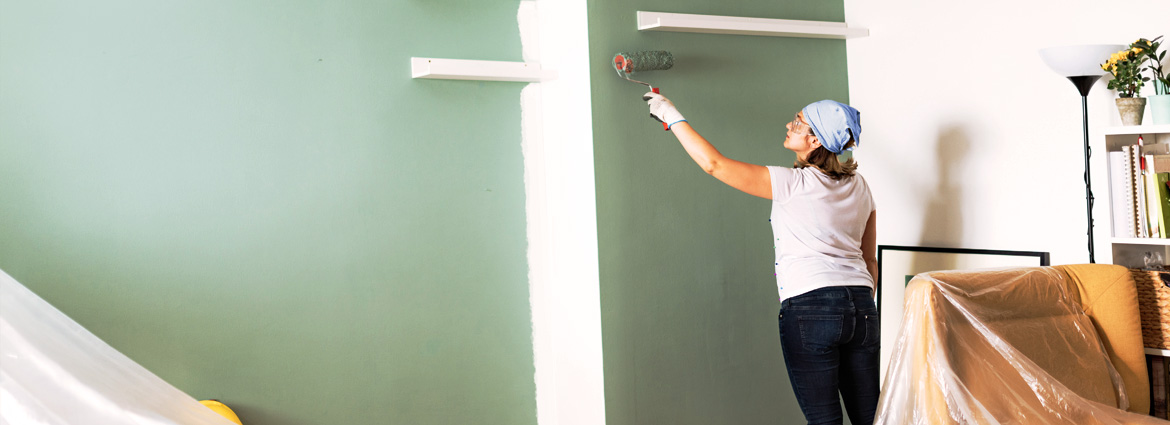When you’re purchasing a home, the last step is called the closing process. If you are reading this, then you may be ready to finalize the last details of your homebuying transaction. That’s great! But, while it may feel like the end of the line, there are still a few more steps to go until you get to the finish.
At closing—defined as the last phase in processing your mortgage where the property title is passed from the seller to the buyer—you’ll meet with various legal representatives and sign a flood of documents. On top of that, you’ll need to get ready for the big move. Here’s the breakdown of what happens before you take possession of your keys.
Create a timeline for the purchase
Generally speaking, you have 60 to 90 days from the time you sign your purchase agreement to close. In some cases, that timeline can be shorter or longer. It really just depends on what was agreed upon. Regardless of the number of days you have left, you need to make sure everything gets taken care of before your closing date. It may sound obvious, but before you can close, you have to meet all the conditions set by your lender—which are laid out in your loan documents—and this can take time.
“Getting your mortgage approved and hiring a real estate lawyer should be your priorities after you sign your purchase agreement,” says Janessa Berman, a Relationship Manager with Coast Capital. “You’ll also want to book a home inspection and give your landlord notice to avoid any potential penalties.”
Here are some other actions you need to perform during the time leading up to your closing:
- Hire a real estate attorney: Retaining a real estate lawyer is often a lender condition and can play a significant role in your transaction. He/she will have access to the software needed for title searches and is often required to sign land transfer documents. Plus, they’ll be the one person at closing who represents your legal interests. From finalizing all your documents correctly to fulfilling lender requirements, this person’s got your back. Fees can vary but are often $150 to $350 an hour.
- Purchase homeowner’s insurance: This is a lender requirement. The average annual cost hovers around $1,100.
- Obtain title insurance: It’s not likely, but possible, that down the line someone else could make a surprise claim on your property. That’s why you need to purchase title insurance. It’s only a one-time cost, and you’ll have peace of mind that you are the sole owner of the property.
- Review your disclosure document: This form itemizes the closing costs for both you and the seller and includes important information about your loan. It’s required by federal law that your lender provide this document for you at least three business days before your closing so you can review it. If anything looks awry and is not the same as when you started out, it’s time to speak up.
- Schedule a walk-through: You may also want to schedule a final walkthrough of your new property with your realtor to ensure the house is in the same condition as when you signed the offer.
Understand your remaining closing costs
Even though you’ve agreed to a purchase price for your new home and obtained the necessary insurance, there are some additional costs to factor in before you close. Generally speaking, closing costs will range between 2% to 5% of the purchase price. Some of the expenses will also be rolled into your mortgage, so it’s not likely you’ll need to have much cash a closing. But here’s what else you need to budget for:
- Home inspection: This may be a condition of the sale.
- Land transfer tax: Some provinces charge a land transfer tax.
- Mortgage insurance: If you’re purchasing a home and putting less than 20% down, you’ll need to cover the mortgage insurance.
- Taxes and utility bills: The previous owner may have outstanding expenses on the home, such as property taxes and utilities. If so, you’ll need to handle them.
- Moving expenses: Don’t let movers be an afterthought. If you plan to move on closing day or thereabouts, you will need your movers lined up. The transfer of ownership often means you need to be out of one place strictly by a specific date and into another, so it can get hectic.
While the above list may seem a bit intimidating, a lawyer can be a good help in managing and handling these fees. That said you’ll want to be thorough, review the process yourself, and be ready for the required steps.
Prepare for your closing appointment
As your closing date approaches, your lawyer will go over any final adjustments with you and review all the paperwork to ensure everything goes smoothly. “If there are any flags, you would have been given enough notification to address them,” says Berman.
You’ll also need to deliver the rest of your down payment (if any) to your lawyer before your closing date. “It’s worth mentioning that lenders are legally required to ask you where you got the funds from, due to anti-money laundering laws,” says Berman. “You may need to provide proof that the money came from savings, a gift, or the Home Buyers’ Plan, for instance.”
Once your lawyer has been given the funds, they’ll get the remaining balance from your lender. These funds will then be transferred to the seller on the closing date. The home will then be registered to your name. In some cases, you’ll pick up the keys from your lawyer or realtor, so you may need to coordinate with them.
Get ready to move in
From there, you should think about what needs to be done to get settled in your new home. Consider booking contractors and painters before your closing date if you’re going to get some home renovations done before you move in. Don’t forget about scheduling a technician to install your internet. Also remember to change your address with the post office and other key entities like your bank, government agencies, and service providers in enough time for a seamless arrival to your new place.
“It’s important to note that your closing date does not have to be the same as your moving day,” says Berman. “Once you’ve closed, the home is yours. You can choose to move in whenever you want.” If that’s the case, make sure you have storage provisions for your belongings.
Sometimes it makes sense to delay the move as you take care of renovations, painting, or even changing the locks. Some people will purposely overlap their current lease with their closing/moving date, so that’s also a possibility, too.
Be clear with your movers about how you want things to go. Ideally, you’ll already have all your boxes labelled, so the movers will know where everything should be placed. Creating a checklist of what needs to be moved is also handy as you can cross things off as they’re unloaded.
Lastly, congratulations! Crossing buying a new home off your list might be the most satisfying to-do item you accomplish.
Ready to take the next steps on your homebuying journey? Contact a Coast Capital Mortgage Advisor to get started.



